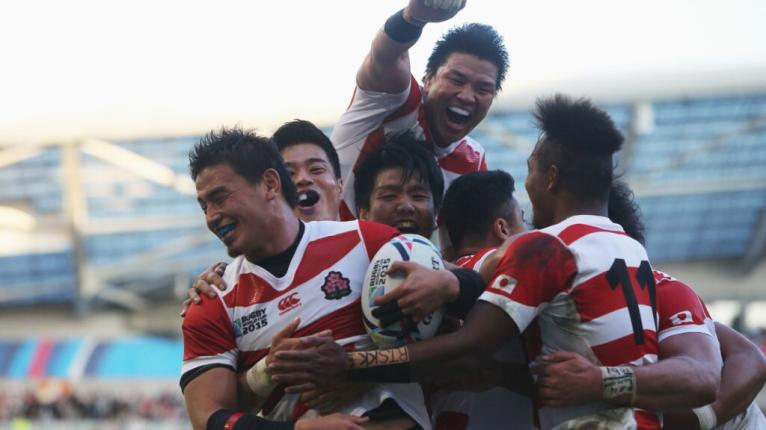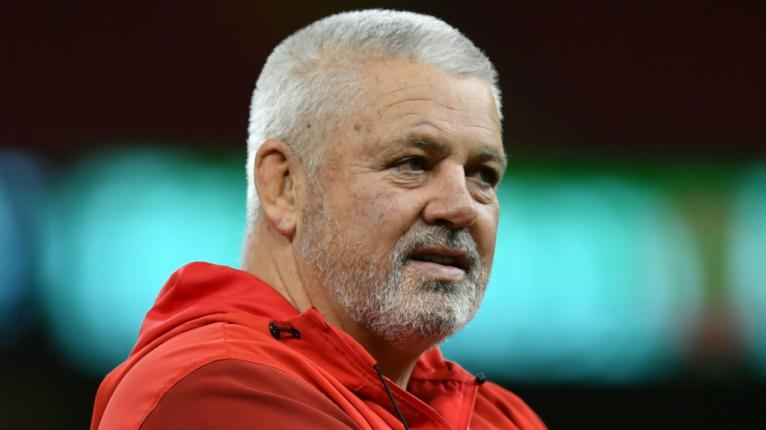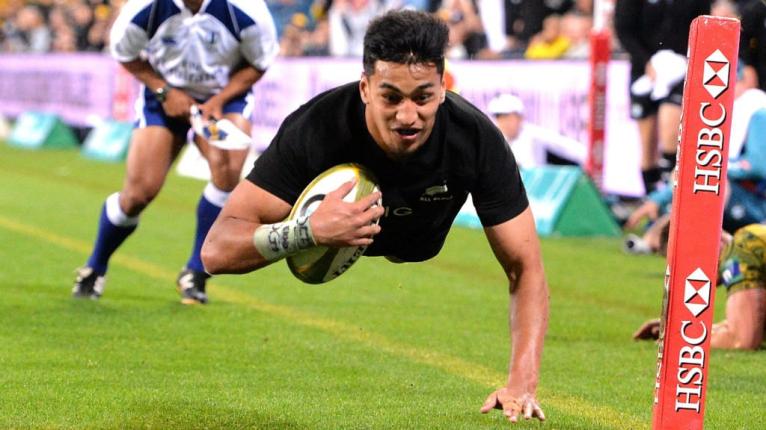The new year isn’t much more than a fortnight old, but that shouldn’t deter anyone from getting excited about the commencement of the World Cup at the end of the year.
Before that though, there’s a feat of rugby to plough through in the form of the Six Nations, Rugby Championship, Super Rugby, European Champions Cup, Premiership, Top 14 and Pro14.
Without knowing the outcomes or turn of events that could alter or sway proceedings at this year’s World Cup, Alex McLeod has brainstormed 10 World Cup-related predictions eight months out from kick-off.
1) Ireland to win the World Cup
As we inch closer to the sport’s premier tournament, it’s increasingly difficult not to see one of either Ireland or New Zealand claiming the title in Japan.
It almost seems certain that the fight for world supremacy is set to come down to these two nations on November 2, and if 2018 taught us anything, it’s that Ireland are in the best position of the two to earn the title of world champions.
That much was proved by maiden victory on home soil against the All Blacks, accompanied their Six Nations grand slam success, as well as a series victory over the Wallabies in Australia.
For a team that has never progressed past the World Cup quarter-finals, it’s possible that there will be no better time for the Irish to mount a challenge for the Webb Ellis Trophy than in 2019.
If they can’t secure it this year, then it would beg the question if they ever will.
2) Japan to qualify for the World Cup quarter-finals
The foundations laid by Eddie Jones during his mightily successful tenure as Japan head coach have been built upon by Jamie Joseph and Tony Brown since taking over in 2016.
A win over South Africa at the 2015 World Cup stunned the world, and since then, Joseph and Brown have been working in tandem to ensure the Brave Blossoms can go one step further and qualify for the knockout stages for the first time in front of their home fans.
It’s a plausible prospect, with victory over Russia a certainty, and a win likely against Samoa.
While an upset over Ireland should prove to be a step too far, an all-or-nothing bout against Scotland in the final pool match of the tournament in Yokohama should make for intriguing viewing.

The Scots are very difficult to beat on their day, but have also been vulnerable to slipping up, as the USA proved with their shock 30-29 win in Houston last year.
Should Japan fully embrace the support of their home fans, Scotland will need to be wary to avoid replicating that embarrassment.
3) Argentina will be the victim of the ‘Pool of Death’
Pool C has become undoubtedly the toughest group of this year’s World Cup.
In England, France and Argentina, we have three seriously competitive Tier One nations vying for two quarter-final slots, while the USA are in arguably their healthiest-ever state, and Tonga always have the capacity to rock the apple cart.
It’s unlikely that the former three nations will fall victim to the USA or Tonga, but one of them must miss the cut for the play-offs.
At risk of looking silly should they actually qualify for the quarter-finals, Argentina could just as easily drop out at the pool stage.
The Pumas have really struggled for form since the last World Cup, winning just seven matches over the last three seasons, including only two victories from 13 outings in 2018, despite the promising appointment of Mario Ledesma as head coach.
With England shaping as one of the title favourites behind Ireland and New Zealand, and France proving to be dominant in their 28-13 win in the side’s most recent clash in Lille last year, Argentina face a stern challenge in cementing their place in a fourth successive quarter-final.
4) Australia to tumble out of the World Cup at the group stage
One of the more left-field predictions on this list, but the possibility of a meteoric capitulation within the Australian camp isn’t really that far-fetched.
Calls for Michael Cheika’s head as Wallabies head coach have been coming for a long time now given his lack of positive results, but Rugby Australia have stuck by him and are willing to let him redeem himself at the World Cup.
While their willingness to stand by their man heading into what is arguably the most competitive World Cup ever is heartening to see, it’s still difficult to envisage Cheika salvaging his reputation and steering Australia to a commendable finish in Japan.
His hot-headedness, lack of temperament and questionable tactical selections have constantly been linked to Australia’s decline in fortunes over the last few seasons, and heading into the most pressure-filled year of Cheika’s tenure as Wallabies coach, those flaws have the potential to see the two-time World Cup-winners turn belly-up.
An exit at the quarter-final stage is what most onlookers will expect, but Cheika’s capacity to fracture his squad’s chemistry could be enough to see them fall to one of either Fiji or Georgia, two nations who are building promisingly from their 2015 campaigns.
5) Wallabies to sign Warren Gatland as head coach from 2020 onwards
It’s probable that Cheika will stand down as Wallabies coach after the World Cup, but a pool stage departure would definitely see him booted from the role, meaning the search for a new candidate would be undertaken.
A preference for an Australian head coach to take the reins of the national side would be undermined by the fact that there’s not really anyone good enough or available to take the job.
Even if he parted ways with England, it’s hard to see Eddie Jones returning to the post he left in 2005 following a shocking Tri-Nations and end-of-year tour, while assistant coach Stephen Larkham hasn’t yet proved himself to be worthy as a Tier One national coach. Brad Thorn, Daryl Gibson and Dan McKellar have all had tumultuous times as coaches of the Reds, Waratahs and Brumbies, although the impressive Dave Wessels has done a great job of turning around the Melbourne Rebels since arriving from the Force.

However, trumping all those options is Warren Gatland.
With more than a decade of international coaching and a wealth of success with Ireland, Wales and the British and Irish Lions, the former All Black could be enticed to make a permanent return to Australasia to be closer to home and family after standing down from the Welsh position.
There’s not much of a better way to do that than by succeeding Cheika post-2019.
6) Joe Schmidt to succeed Steve Hansen as All Blacks coach
This is another long shot given that Joe Schmidt has already stated his intentions to take time off from coaching after the World Cup.
However, it’s difficult to believe that he would spurn the opportunity to take the reins of All Blacks head coach should New Zealand Rugby come knocking.
It would be difficult for NZR not to do so should Ireland go all the way in Japan later this year, and although there is a more-than-adequate list of candidates that could fill Steve Hansen’s boots – including that of Ian Foster, Warren Gatland, Scott Robertson, Jamie Joseph, and Vern Cotter – Schmidt is undoubtedly the cream of the crop.
7) South Africa will look to keep Rassie Erasmus on board as head coach
What a job Rassie Erasmus has done of turning around the fortunes of the Springboks in the space of 12 months.
Under the stewardship of his predecessor Allister Coetzee, the Boks were a bumbling mess, winning just 11 of 25 tests over a two-year span, which included record defeats to the All Blacks, Wales and Ireland, a first-ever away loss to Argentina, and a first-ever loss to Italy.
Things had become so bad that many feared if the Springboks were able to return to their former glory, which saw them claim two World Cup titles in 12 years.
That was until Erasmus took charge.
A home series win over the heavily-favoured English was followed by a famous win over New Zealand in Wellington, a feat that was almost repeated a few weeks later in Pretoria.
Erasmus’ ability to successfully wield together a group of highly-motivated, vastly talented players within South Africa Rugby’s delicate political sphere has yielded much-improved results, and they’ve transitioned from likely World Cup busts to a side that would be disappointed not to be in the final.
Despite Erasmus stating he intends to quit the job post-World Cup to become South Africa’s director of rugby, the South African Rugby Union would be crazy to let Erasmus go so easily, so expect them to try to keep him locked in the head coach role.
8) Either Rieko Ioane or Jacob Stockdale to lead the World Cup for most tries
If you’re a betting person, put your money on one of these two to top the try-scoring charts.
Both young wingers are try-scoring machines, as proven in their brief international careers thus far.
Rieko Ioane has scored 22 tries in 24 outings since his debut against Italy in 2016, and averaged a try per test in 2018 thanks to his immense power, pace and finishing ability.

Meanwhile, Jacob Stockdale has scored 12 times in 14 tests since first appearing against the United States in 2017, led the Six Nations scoring charts last year with seven tries in six matches, and was nominated in succeeding Ioane to claim World Breakout Player of the Year.
Given their prolific scoring nature with ball in hand, as well as the likelihood of New Zealand and Ireland progressing deep into the knockout stages, expect Ioane and Stockdale to pile on the tries in Japan.
9) Will Jordan to emerge as World Breakthrough Player of the Year
If Nehe Milner-Skudder was the breakout star for New Zealand in the last World Cup year, then this year it’s going to be Will Jordan.
The freakishly talented 20-year-old was unfortunate not to have won a Super Rugby cap with the Crusaders last year, but his presence among rugby’s elite has certainly been felt while plying his trade at the World Rugby U20 Championship and in the Mitre 10 Cup.
The electric fullback was nominated for player of the tournament after a series of spell-binding performances for New Zealand in their title winning campaign in 2017, while his exploits for Tasman over the past two years have earned him a reputation as one of the country’s brightest young stars.
The departure of Seta Tamanivalu opens a space in the Crusaders’ outside backs in 2019, and should Jordan cash in on that opportunity, an All Blacks call-up almost seems imminent.
If he can showcase his array of sublime skills on the world stage from that point onwards, Jordan’s name would certainly be in the reckoning for World Breakthrough Player of the Year.
10) Ma’a Nonu to be named in the All Blacks’ World Cup squad
With 103 test caps and two World Cup titles, a return to the All Blacks for the World Cup four years after his last outing in the black jersey would be impressive, even for someone as talented as Ma’a Nonu.
For that to happen though, the 36-year-old needs to surpass at least two of the current midfield incumbents in Sonny Bill Williams, Ryan Crotty, Anton Lienert-Brown, Jack Goodhue and Ngani Laumape.
To do that, Nonu must produce nothing less than an outstanding Super Rugby campaign with the battling Blues, the side of which he’s re joining for a third spell.
That much is easier said than done, as the Blues are undergoing the most testing period results-wise in their 24-year history.
However, for a side that is in dire need of a seasoned leader that brings with him a plethora of wisdom to accompany his proven repertoire of blockbusting ball-running and tactical nous, the Blues have their man in Nonu.
A play-offs appearance for the Blues and a World Cup re-call for Nonu go hand-in-hand with each other, and if the veteran midfielder can bring those qualities garnered from more than a decade-and-a-half of experience to the Auckland franchise this year, then both parties are likely to achieve their goals.
Rugby World Cup City Guides – Oita:

























































